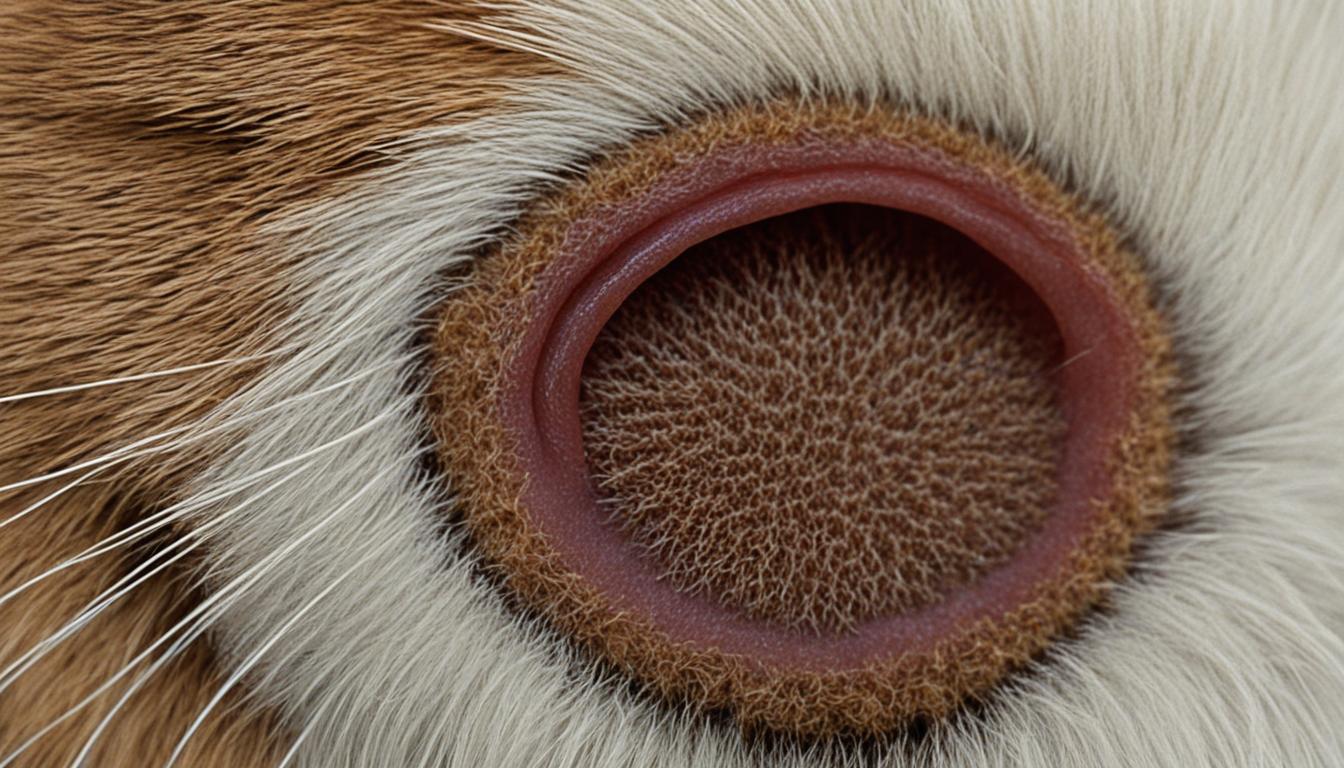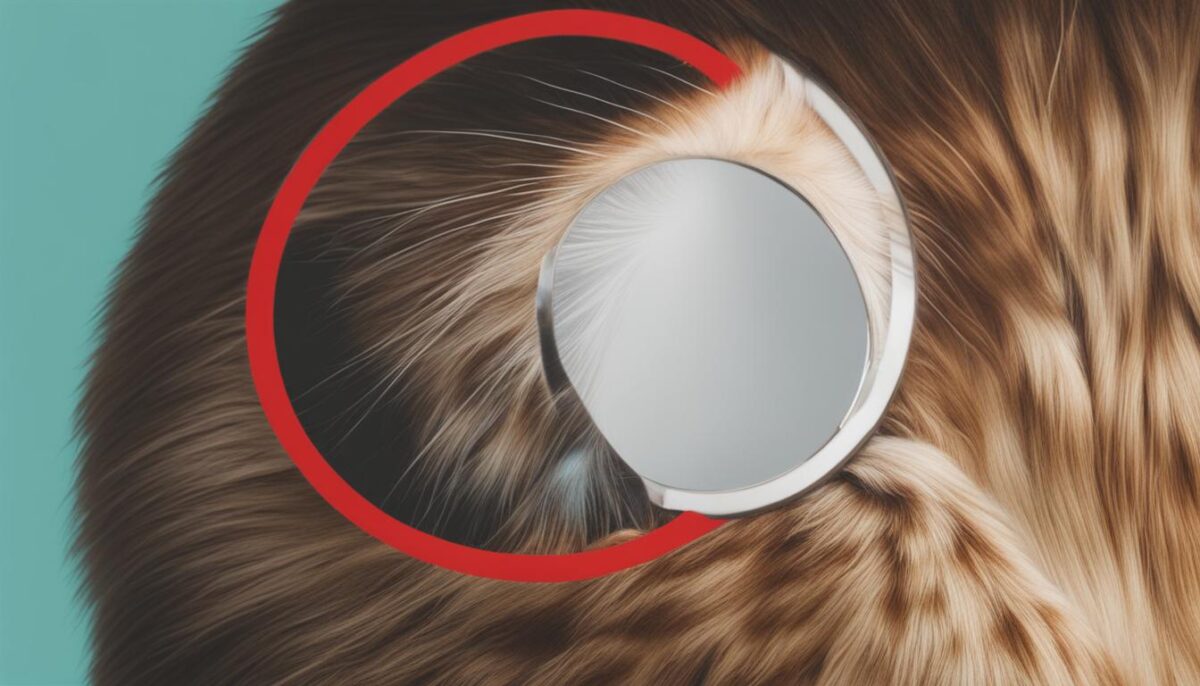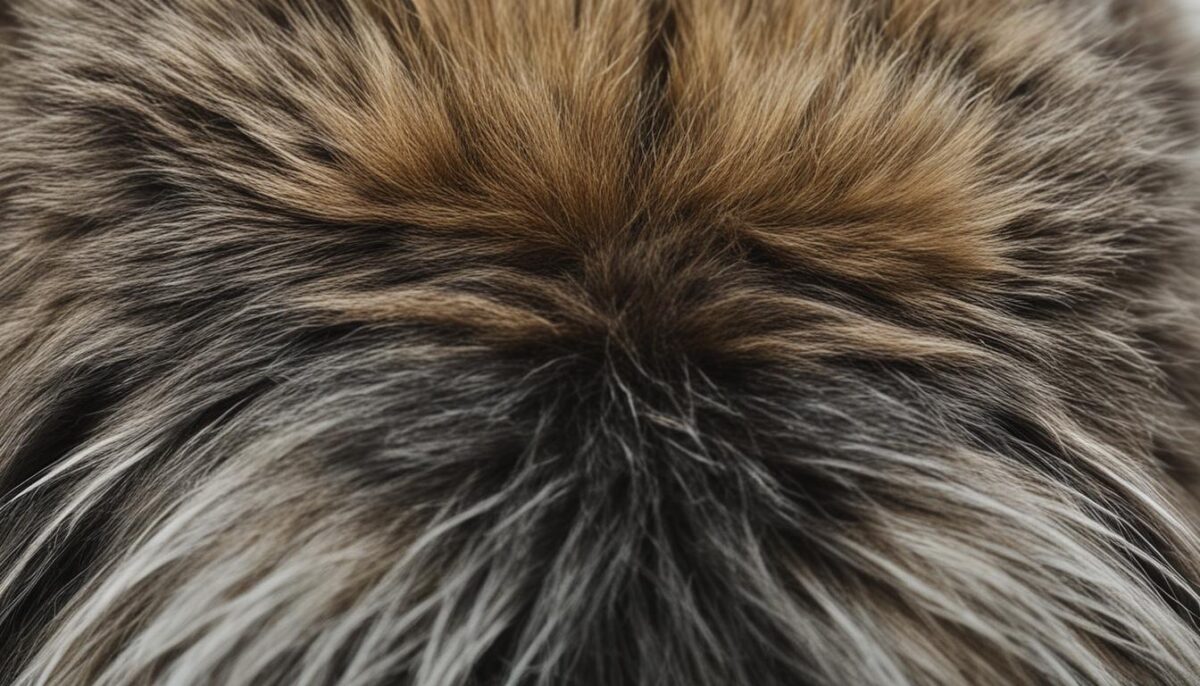Hey there! Have you ever thought about your cat’s bottom health? It’s something you might not talk about a lot, but it can be important. While people can have a problem called hemorrhoids, cats don’t get this. Instead, they might have trouble with something called ‘cat anal glands’. These are small glands near their anus. Sometimes these glands can become impacted, get infected, or even develop serious conditions like cancer. But no hemorrhoids in cats!
If you see your furry friend having a smelly bottom, bleeding, or swelling back there, it’s time to visit the vet. Don’t worry, it’s their job to help with all cat health issues, even the bum ones!
Key Takeaways
- Cats don’t get hemorrhoids like humans do.
- Keep a close eye on your cat’s bottom wellness.
- Troubles with cat anal glands might need a vet’s care.
- Smelly fluid, bleeding, or swelling is a sign to get help.
- Keep your cat happy by taking care of their overall feline anal health.
Introduction to Feline Anal Health
Hey there, cat lovers! Let’s talk about a topic that’s super important for your furry friends – their anal health. Cats have these little things called feline anal glands, which are similar to tiny pockets on each side of their bottom. These glands do an interesting job: they make a special scent that cats use to mark their territory, especially when they go poop.
Sometimes though, just like you might have a tummy ache, cats can get issues with their glands too, such as cat anal sac disease. This can make their bottom hurt, leak a stinky fluid, or even swell up. But don’t worry, this is different from what humans have – those are called hemorrhoids, and thankfully, cats don’t get those.
It’s a big deal to make sure your kitty is happy and healthy, and part of that is being aware of their anal gland secretion. If you notice anything odd back there, like a bad smell or your cat seems uncomfortable, it’s a good idea to chat with your vet. They’re the best at helping with all things related to cat health.
- Anal Glands 101: Cats have two anal glands that can sometimes cause trouble.
- Signs to Watch For: Bad smells or swelling near your cat’s bum are clues something’s up.
- Don’t Mix it Up: Human hemorrhoids? Nope, cats don’t get those. Their problems are different.
- Ask the Expert: Always check with your vet if you’re not sure about your cat’s behind.
Remember everyone, your cat relies on you to keep an eye out for these things. It might seem a bit weird to think about, but it’s all part of loving and caring for your kitty. Keep them purring and healthy by being a great pet pal!
Can Cats Get Hemorrhoids?
Hey there, cat lovers! Have you ever wondered if your kitty can get hemorrhoids like people do? Well, let’s clear up some feline hemorrhoids myths right away. Cats do not get hemorrhoids. That’s right! Even though they may have some bum troubles, hemorrhoids are not one of them. So, what’s going on when a cat looks uncomfortable back there? It’s all about their anal gland function and keeping their cat anal health in good shape.
Demystifying Common Myths About Cat Health
It’s easy to think our furry friends get the same problems we do. However, when our kitty has a problem near the tail, it’s not because of hemorrhoids. Cats have trouble with their anal glands sometimes. These are little pockets on each side of their bum that can get full or infected. This is not the same as the swollen veins people call hemorrhoids. So remember, no hemorrhoids in cats!
Understanding Anal Gland Function in Cats
Cats have these anal glands to help them leave their smell on things. This is their way of telling other cats, “This is my spot!” When everything is working the way it should, you won’t even notice. But sometimes, these glands can become full or not empty properly. If you see your cat scooting their bum across the floor or licking a lot down there, they might be having an anal gland issue.
Here’s a table to show you the difference between what people often think is a hemorrhoid in cats versus what’s actually happening:
| What People Think | What’s Really Happening |
|---|---|
| Hemorrhoids | Anal Gland Problems |
| Swollen Veins in Bum | Full or Infected Anal Glands |
| Humans’ Health Issue | Cats’ Health Issue |
So, if you see something odd with your cat’s rear end, it’s a good idea to check in with the vet. Keep your eyes open for any trouble signs, and help keep your kitty happy and healthy. Don’t believe the myths, and know the facts about your cat’s bottom problems – it’s all about the anal glands!
When to Be Concerned: Signs of Anal Gland Issues in Cats
As a pet parent, it’s important to know about the signs of anal gland problems in cats. These feline anal gland issues can make your cat feel very uncomfortable. If you see any of these signs, it might be time to check in with your vet.
- Bleeding from the anus
- A swollen anus
- Bad-smelling fluid
Cats may feel so itchy or sore that they lick or chew near their bottom a lot. This can mean they have an anal gland impaction, infection, or abscess. Other times, your cat might act sick with severe vomiting, act very tired, or have weakness and pale gums. This is serious and needs a vet right away.
If your cat has just a little bleeding and seems okay otherwise, watch them closely. If it keeps up, talk to your vet. Being aware and recognizing cat anal complications early can really help your cat stay happy and healthy.
| Signs to Watch For | Actions to Take |
|---|---|
| Licking or chewing at the anal area | Monitor your cat; if it continues, see the vet |
| Swollen anus or visible bleeding | Consult with your veterinarian |
| Bad smell or discharge from the anus | Check for signs of an infection or impaction |
| Vomiting, lethargy, weakness, pale gums | Visit your vet immediately |
Diagnosing and Treating Feline Anal Gland Complications
If your furry friend is having bum troubles, it’s really important to get it checked out. A vet will look at your cat’s backside to see if there’s a problem with their anal glands. These little pockets can get blocked up, infected, or even explode like a tiny volcano – ouch! But don’t worry, the vet knows just what to do to get your pal feeling good again.
Anal Gland Impaction and How to Handle It
Sometimes, those glands near your cat’s tail get clogged up, and that’s called impaction. Your vet might gently squeeze the glands to clean them out. It’s a bit like popping a zit, but please don’t try this at home; the vet is an expert who knows how to take care of it without hurting your kitty.
Approaches for Anal Gland Infection and Abscess
If those glands get infected or form a pocket of pus (called an abscess), your cat might need some medicine called antibiotics. This helps to fight off the ickiness. In some cases, they might even need a small surgery to fix the problem. But after some TLC and vet care, your cat can get back to their happy, tail-wiggling self!
Managing and Recovering from an Anal Gland Rupture
Now, if the gland explodes (that’s what we call a rupture), your cat will need some extra help. The vet might give them something to take away the pain and fix them up with surgery. It might sound scary, but it helps a bunch. Once your cat is all patched up, keep a close eye on them to make sure they heal properly and don’t have more issues later.
It’s super important to catch these troubles early. Keeping your cat’s behind healthy means less stress for them – and for you! If you spot something that doesn’t look right, whisk them off to the vet. You’re not only being a good pet owner, but you’re also helping your cat stay happy and comfy.
FAQ
Can cats suffer from hemorrhoids like humans do?
No, cats cannot get hemorrhoids. The conditions that affect a cat’s anal area are different and may include gland impaction, infections, or anal gland adenocarcinoma, but not hemorrhoids.
What are the common signs of anal gland issues in cats?
You should look for symptoms like bleeding, smelly anal gland secretions, or swelling near their anus. Your cat may also lick or chew at their anal area excessively.
How do feline anal glands function?
Cats have anal glands that produce a scent-marking fluid. This fluid is typically expressed during defecation and is used for territorial marking.
What should I do if I notice my cat has a swollen anus or is leaking a smelly fluid?
It’s important to consult with a veterinarian if you notice these symptoms. They could indicate anal gland impaction, infection, or even an abscess that may require medical attention.
How are cat anal gland issues diagnosed and treated?
A veterinarian will typically start with a physical examination and may manually express the glands, flush them with saline if blocked, or prescribe antibiotics for infections. Severe cases, such as an abscess or rupture, could require surgical intervention.
Are there ways to prevent anal gland problems in cats?
Regular veterinary check-ups can help identify and treat anal gland issues before they become serious. Ensuring your cat has a healthy diet and adequate exercise can also support their overall anal gland health.
Can anal gland problems in cats lead to other health concerns?
If left untreated, anal gland issues can lead to significant discomfort, infections, or even systemic health problems. Early detection and treatment are key to preventing more serious complications.
Besides anal gland issues, what other anal health conditions should I be aware of in cats?
While anal gland issues are common, cats may also experience other conditions like tumours, infections, or injuries around the anus. Any signs of discomfort or changes in behavior should prompt a veterinary consultation.
Do cats show any specific behavior when experiencing anal gland problems?
Yes, a cat with anal gland issues might scoot their bottom on the ground, excessively groom their anal area, or exhibit signs of pain like meowing or aggression when the area is touched.
How often should anal glands be expressed in cats?
Anal gland expression in cats is not usually necessary unless they are having problems. Your veterinarian can advise you on whether your cat needs this procedure and how often.


